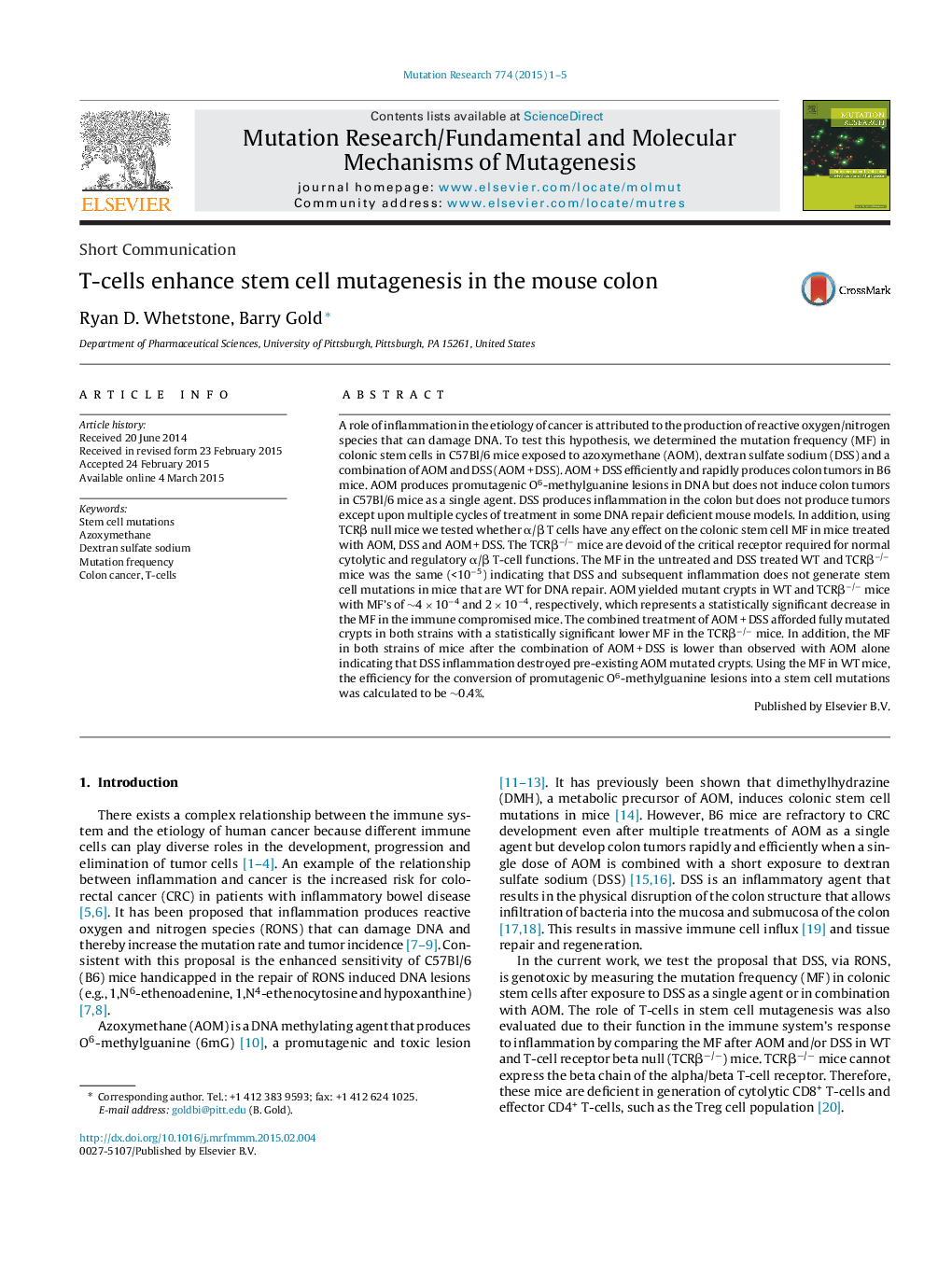| Article ID | Journal | Published Year | Pages | File Type |
|---|---|---|---|---|
| 2146231 | Mutation Research/Fundamental and Molecular Mechanisms of Mutagenesis | 2015 | 5 Pages |
A role of inflammation in the etiology of cancer is attributed to the production of reactive oxygen/nitrogen species that can damage DNA. To test this hypothesis, we determined the mutation frequency (MF) in colonic stem cells in C57Bl/6 mice exposed to azoxymethane (AOM), dextran sulfate sodium (DSS) and a combination of AOM and DSS (AOM + DSS). AOM + DSS efficiently and rapidly produces colon tumors in B6 mice. AOM produces promutagenic O6-methylguanine lesions in DNA but does not induce colon tumors in C57Bl/6 mice as a single agent. DSS produces inflammation in the colon but does not produce tumors except upon multiple cycles of treatment in some DNA repair deficient mouse models. In addition, using TCRβ null mice we tested whether α/β T cells have any effect on the colonic stem cell MF in mice treated with AOM, DSS and AOM + DSS. The TCRβ−/− mice are devoid of the critical receptor required for normal cytolytic and regulatory α/β T-cell functions. The MF in the untreated and DSS treated WT and TCRβ−/− mice was the same (<10−5) indicating that DSS and subsequent inflammation does not generate stem cell mutations in mice that are WT for DNA repair. AOM yielded mutant crypts in WT and TCRβ−/− mice with MF's of ∼4 × 10−4 and 2 × 10−4, respectively, which represents a statistically significant decrease in the MF in the immune compromised mice. The combined treatment of AOM + DSS afforded fully mutated crypts in both strains with a statistically significant lower MF in the TCRβ−/− mice. In addition, the MF in both strains of mice after the combination of AOM + DSS is lower than observed with AOM alone indicating that DSS inflammation destroyed pre-existing AOM mutated crypts. Using the MF in WT mice, the efficiency for the conversion of promutagenic O6-methylguanine lesions into a stem cell mutations was calculated to be ∼0.4%.
